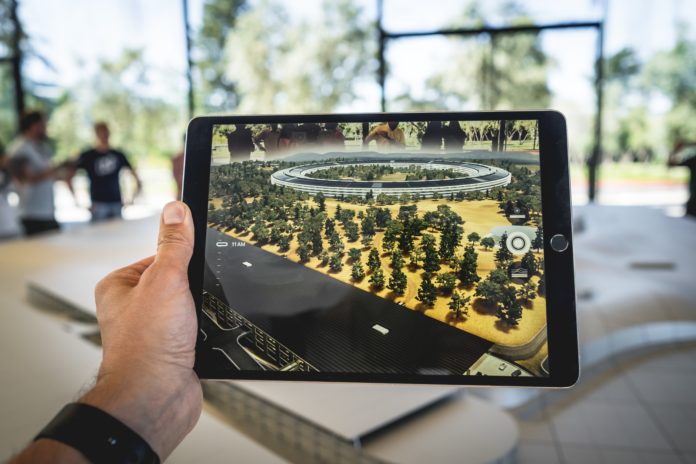In the last one year, Augmented Reality and Virtual Reality made their presence felt beyond gaming and entertainment. While the two technologies – together known as Extended Reality (XR) – are yet to go mainstream and gain widespread acceptance across industries, the trend is clear. Enterprises are viewing AR as a solution to address new challenges.
The latest IDC Innovators report provides clarity recognising four enterprise AR platforms as Innovators in the sector: Atheer, Scope AR, Ubimax, and Upskill.
- Atheer: a cloud-based, device-agnostic platform that provides a wide range of AR capabilities, including software that allows companies to create apps and tap into existing data.
- Scope AR provides enterprise users with remote assistance capabilities that enable users to simultaneously view AR work instructions and talk with an expert.
- Ubimax enables an organization to build its own AR experiences using a drag-and-drop editor and preconfigured industry-specific components that run on a wide range of hardware.
- Upskill offers the ability access to digital information when and where it is needed, real-time collaboration with experts, and the ability to capture insights and streamline work processes.
The growing significance of AR enterprise platforms
The recent challenges due to COVID have caused many businesses to accelerate their plans around AR enterprise platforms, noted IDC.
As businesses look for ways to drive new business processes and enable remote collaboration amid the pandemic, AR enterprise platforms are seen as potential solutions to address these challenges.
“Companies want a platform that brings together multiple AR capabilities that also ensures data remains secure.”
“As more companies move aggressively to leverage augmented reality, the role of the AR platform has become increasingly important,” said Tom Mainelli, group vice president of Device and Consumer research at IDC.
Capabilities include see-what-I-see videoconferencing, digital instructions, real-time data access, knowledge capture, knowledge transfer, and more.
Also Read: Target switches on Instagram Checkout
Other Innovators
Facebook Virtual Reality Oculus for Business

Facebook brings together its Workplace, Oculus and Portal aiming to be the remote work platform of the future. In a blog post, the company revealed Oculus (its VR headset) and Portal, its video screen device will be part of the future-ready collaborative platform of work.
The demand for Facebook’s Virtual Reality offering Oculus Quest has grown – not just for entertainment but also immersive professional training and virtual meetings.
Facebook VR tools already used by enterprises:
- Sales folks at Nestle Purina are using VR to visualize retail displays and gather sales teams while reducing travel.
- Johnson & Johnson Institute is training surgeons with Oculus and helping improve patient outcomes.
- Employees at Hilton are using interactive simulations to gain a deeper understanding of the complexities of hotel operations.

AR In Retail
North American retailer Lowe’s offered a new AR feature to help tradespersons manage jobs, doing virtual home visits and inspections. The technology solution is powered by Streem, accessed via a mobile browser.
Etsy, the leading online marketplace for vintage and handmade goods, introduced augmented reality to help its customers visualise Wall Art, Paintings or Prints. The new AR feature helps users visualize how wall art would fit in different areas of their space before making a purchase decision.

Aimed at creating a more visual shopping experience, Etsy announced this is the first step in implementing augmented reality.
ITVibes Recommended Reading:













